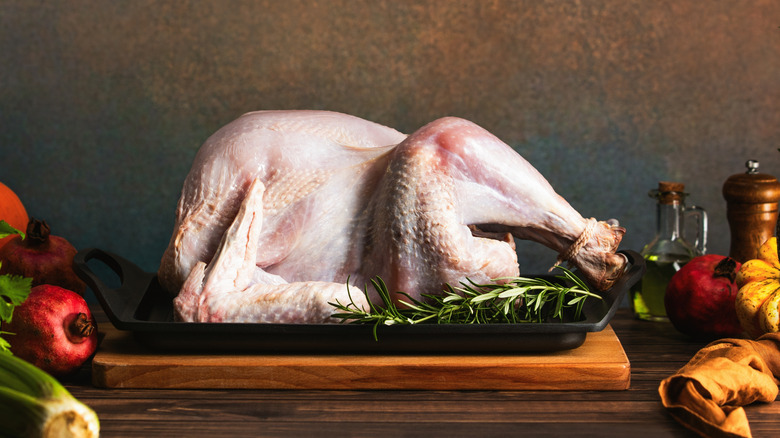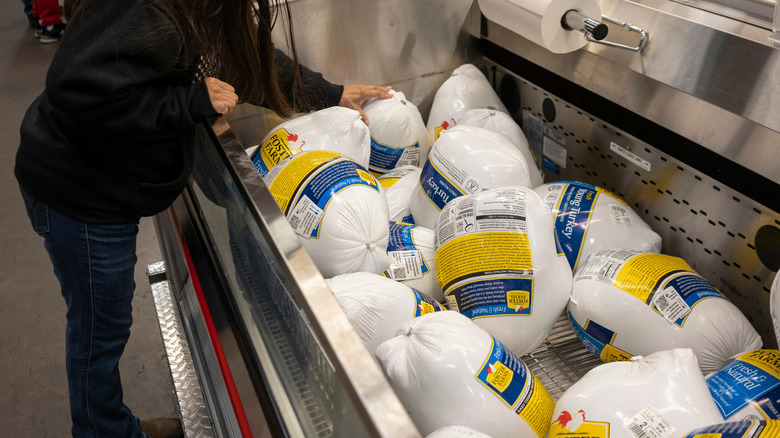The Red Flags To Avoid When Buying Whole Turkey From The Grocery Store
Buying a turkey for the holidays is a major purchase, so the last thing you want to do is grab one that isn't up to your expectations. Cooking the perfect whole turkey is a challenging enough proposition even with the best ingredients. Getting the timing right, keeping it juicy, and delivering perfectly browned crispy skin to the table all take serious care and attention, and having a mediocre turkey that's flavorless or dry will only make it harder. Worse yet, fresh whole turkeys are sold in huge quantities around end-of-year holidays, so freshness can be hard to keep track of. Thankfully, there are a lot of labels on your turkey — and easy visual signs — that can warn you about buying the wrong one.
The first thing to look out for with turkeys is where they came from and how they were produced. Speaking with chef Harold Moore about the biggest mistakes people make with turkey, he told us, "I do not like a big, boxed [turkey] that come[s] pre-brined, injected with garbage," referring to brands like Butterball which come pre-brined with long, vague lists of ingredients. Instead, he recommended an "organic, free-range turkey from a farm that you know." While that may not be possible for everyone, avoiding turkeys labeled with terms like basted, injected, or pre-brined is a good way to avoid additives and fillers that can mess with the taste of your finished roast. Instead, look for labels like natural and free-range, which are minimally processed.
Avoid highly processed turkeys and birds with odors or slime
Buying a fresh turkey instead of frozen has real appeal; it seems more natural and also requires less work to defrost, but it will also carry additional risks. Fresh turkeys should be purchased no more than a few days before you plan to cook, and you should look for a "best by" label to double-check how long that "fresh" poultry has been sitting in the store. If you can see the skin of the fresh turkey, there are also visual clues. Discoloration alone is not a huge issue, it's just a natural part of meat sitting out, but if the bird feels sticky or slimy, it may be too old. Off-odors are also a huge red flag with any kind of fresh poultry.
Finally, even if you are buying frozen turkey, there are things to look out for. Make sure the package the turkey was frozen in has not been punctured or tampered with. Beyond the safety issue, this will also affect the quality of the meat and could expose it to freezer burn. Patches of white dried ice on a turkey are signs of freezer burn, and while it won't make you sick it will degrade the meat that you paid so much money for. Picking out the right bird is the first step towards a delicious and memorable holiday meal, and it lets you move on to the fun part of deciding exactly how to cook your turkey.

